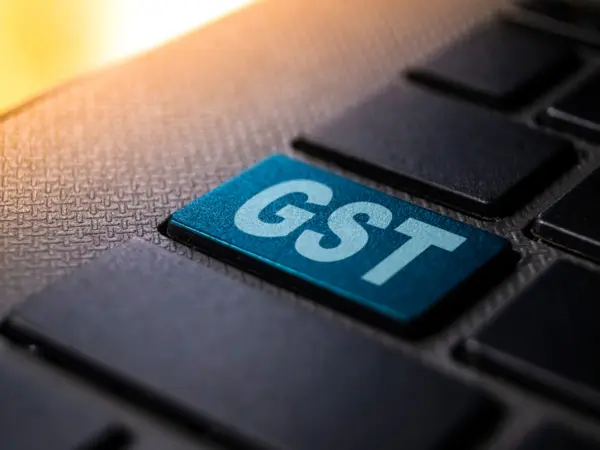What is the meaning of anti-profiteering under GST?
- Any reduction in the GST rate or benefit of input tax credit should be passed on to the end consumer and not retained by the business. This is the basis of the anti-profiteering provisions under GST.
- Under anti-profiteering provisions, it’s illegal for a business to not pass on the benefits of the GST rate benefits to the end consumer, and thereby indulging in illegal profiteering.
- Who regulates anti-profiteering under the GST?
o The Anti-Profiteering Rules, 2017 (defined under Section 171 of the Central Goods and Services Tax Act 2017), prevents entities from making excessive profits due to the lowering of GST.
o The Government has created the National Anti-Profiteering Authority (NAA) to find and take action againsttaxable registered persons indulging in illegal profiteering.
o NAA has the power to determine the methodology and procedure for determining whether a taxable person is engaging in illegal profiteering.
Reporting to the Anti-Profiteering Authority:
o Any interested party who has information to believe a taxable person is engaging in illegal profiteering from GST can refer the matter to the local screening committee.
o The State level Screening Committee shall examine the matter constituted by the State Governments consisting of officers of the State Government.
o If the screening committee determines that the information contains merit, the committee shall forward it with recommendations to the Standing Committee on Anti-Profiteering, which consists of officers of both the State Government and Central Government.
o If the Standing Committee contains enough proof to show that the taxable person engaged in illegal profiteering, then the committee shall refer to the Director General of Safeguards for a detailed investigation.
- Investigation by the Director General of Safeguards:
o All matters referred by the Standing Committee will be investigated by the Director General of Safeguards.
o The Director General of Safeguards will collect evidence, conduct an investigation, and issue notices to the interested parties. The notice must contain the following details:
- The description of the goods or services in respect of which the proceedings have been initiated.
- Summary of the statement of facts on which the allegations are based.
- The time limit allowed to the interested parties and other persons who may have information related to the proceedings for furnishing their reply.
o Once all the information and hearings are complete, the Director General of Safeguards will provide a report of findings.
o A report of findings must be submitted by the Director General of Safeguards, normally within 3 months or within 6 months if an extension is provided.
- Order under Anti-Profiteering Provisions: Once all the proceedings are completed and a report is obtained from the Director General of Safeguards, the Members of Committee will pass an order. An order from the Authority could mandate
o Reduction in prices.
o Return to the recipient, an amount equivalent to the amount not passed on by way of a commensurate reduction in prices along with interest.
o Imposition of penalty as specified under the Act.
o Cancellation of GST registration.
Q1: What is the Goods and Services Tax (GST)?
It is an indirect tax (not directly paid by customers to the government), that came into effect from 1 July 2017 through the implementation of the 101st Amendment to the Constitution of India by the Indian government. It has actually replaced various indirect taxes such as – service taxes, VAT, excise and others in the country. It is levied on the manufacturer or seller of goods and the providers of services.
Source:Delhi HC upholds validity of anti-profiteering provisions under GST
Last updated on February, 2026
→ UPSC Notification 2026 is now out on the official website at upsconline.nic.in.
→ UPSC IFoS Notification 2026 is now out on the official website at upsconline.nic.in.
→ UPSC Calendar 2026 has been released.
→ UPSC Final Result 2025 is expected to be released in the second week of April 2026.
→ Check out the latest UPSC Syllabus 2026 here.
→ Join Vajiram & Ravi’s Interview Guidance Programme for expert help to crack your final UPSC stage.
→ UPSC Mains Result 2025 is now out.
→ UPSC Prelims 2026 will be conducted on 24th May, 2026 & UPSC Mains 2026 will be conducted on 21st August 2026.
→ The UPSC Selection Process is of 3 stages-Prelims, Mains and Interview.
→ Prepare effectively with Vajiram & Ravi’s UPSC Prelims Test Series 2026 featuring full-length mock tests, detailed solutions, and performance analysis.
→ Enroll in Vajiram & Ravi’s UPSC Mains Test Series 2026 for structured answer writing practice, expert evaluation, and exam-oriented feedback.
→ Join Vajiram & Ravi’s Best UPSC Mentorship Program for personalized guidance, strategy planning, and one-to-one support from experienced mentors.
→ Check UPSC Marksheet 2024 Here.
→ UPSC Toppers List 2024 is released now. Shakti Dubey is UPSC AIR 1 2024 Topper.
→ Also check Best UPSC Coaching in India




















